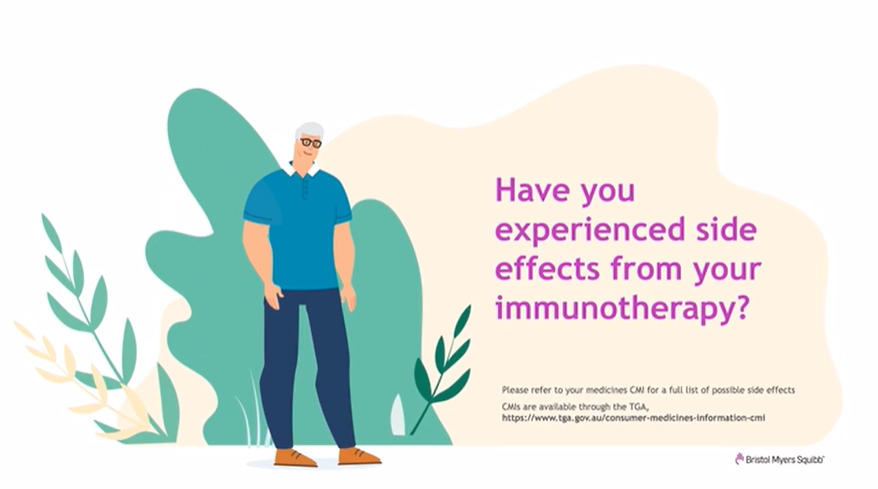Side effects1
Although not every patient may experience them, treatment with immunotherapy can cause side effects. Immunotherapy can cause your immune system to attack normal organs and tissues in your body and can affect the way they work. These side effects can sometimes become serious or life-threatening, so it is important that you report any symptoms to your oncologist, cancer specialist or cancer nurse as soon as you can. If they are reported early, most of the side effects can be managed and treated effectively, with little interruption to your immunotherapy treatment.
The most common side effects are skin rash, itching, diarrhoea, difficulty breathing, fatigue (extreme tiredness) and weight changes.

When might side effects occur?
Signs and symptoms of side effects may happen at any time during treatment or even many months after your immunotherapy treatment has ended. Everyone is different. There is no need to feel embarrassed or worried about reporting side effects to your oncologist or cancer nurse. They are there to help you and can help manage any symptoms the sooner that you let them know.
Call your oncologist, cancer specialist or cancer nurse immediately if you have any signs or symptoms, or if they get worse. Do not treat any signs and symptoms yourself. If you speak with another healthcare professional, tell them you are on immunotherapy.
Being familiar with the types of side effects you may experience can help you recognise them. Always talk to your oncologist, cancer specialist or cancer nurse if you notice anything different about the way you are feeling. Most mild-moderate immune-related side effects can be managed if detected early and treated, so it’s important that you mention any new symptoms to your healthcare team right away.
Download a fact sheet on immunotherapy side effects here
References
- ESMO patient guide series. Immunotherapy side effects. Patient guide on immunotherapy-related side effects and their management; What are immunotherapy side effects? Available at https://www.esmo.org/for-patients/patient-guides/immunotherapy-side-effects
ONC-AU-2100412

